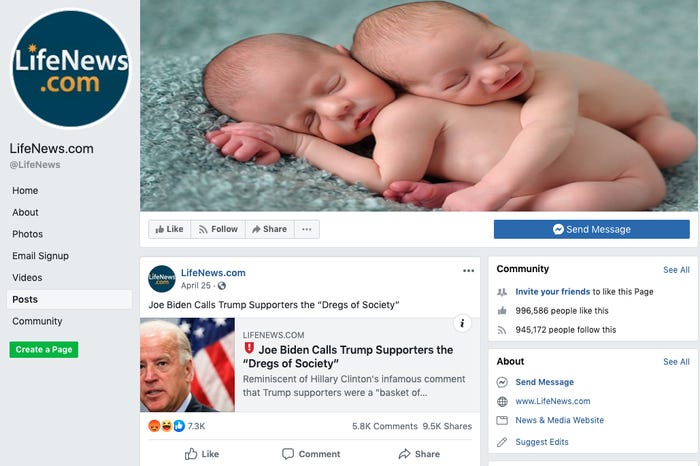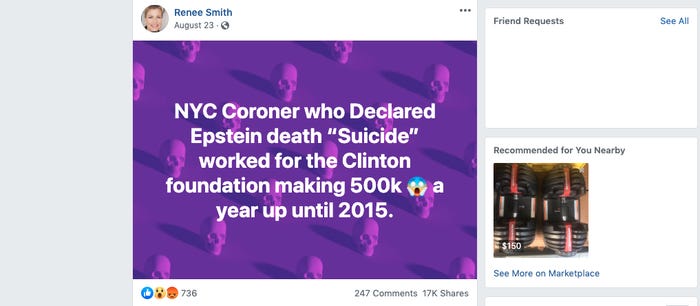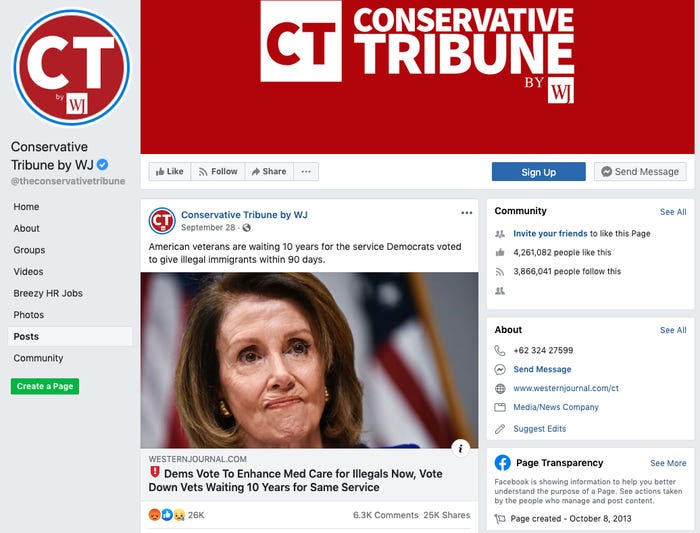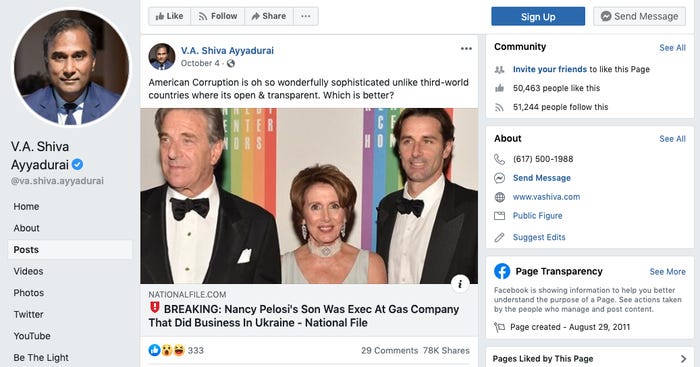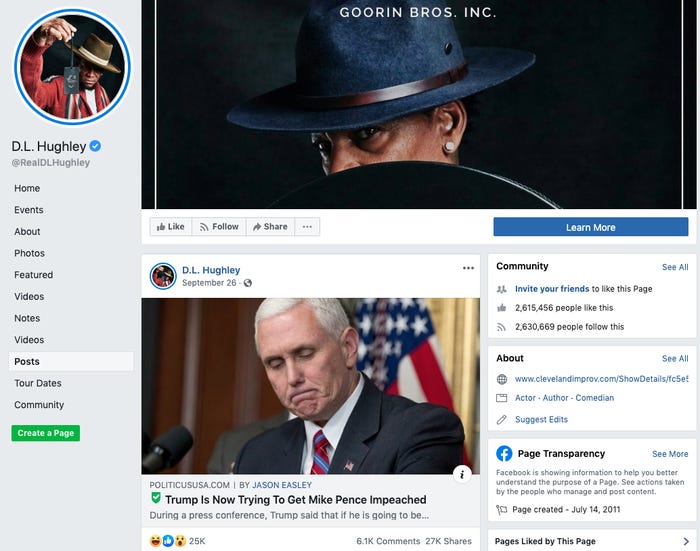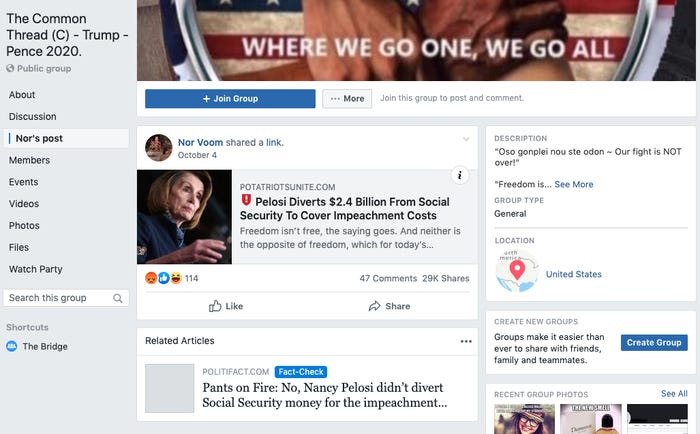Introduction
Misinformation is one of the main issues resulting from social media platforms. Even though various sites have their policies intended to curb such vices, users continue to pass messages, which any credible source has not verified. Most trolls happen online in the accounts of renowned bloggers, who may have pseudo names (Acker & Donovan, 2019). This means that a user hides behind another person’s name and uses such public names to provide contents, which have not been verified. However, other users choose to be identified with spreading rumors regarding any issue in society. Red flags and user information verification from different platform accounts are considered methods for identifying accounts associated with rumors (Acker & Donovan, 2019). This paper explores how misinformation occurs on various social platforms and how such a trend can be reduced by identifying the accounts associated with such activities.
Spotting disinformation campaigns in different sites is crucial as it can help in mitigating this vice. Acker and Donovan (2019) suggest a step-by-step method for detecting data craft across other sites used to connect people. According to Acker and Donovan (2019), seeing metadata associated with a given post can help track such posts’ origin, hence identifying the primary source of the misleading campaign. By tracing various metadata signals available in these sites, one can investigate the data trails, thus identifying the pseudo accounts. Mapping media handling between different platforms can be done by reading the various categories of the metadata identified in a given post and building an information study based on such data (Acker & Donovan, 2019). This study considers metadata such as account names, biodata, content tag, followers, and authentic interactions to determine pseudo accounts. A close examination of the frequency of account activity, the number of followers, the types of user contents shared, and location information are also some of the vital details needed to identify spammers or suspicious accounts.
Data
Facebook is one of the most viewed social media platforms in the world, allowing people to interact in a large scale, thus providing a vast platform for propagate. The following are some of the most widely spread fake news accounts in different social media sites.
LifeNews
LifeNews is one of the most super-spreaders of fake news on Facebook, Twitter, and Instagram. The account has over 219,300 followers and follows above 180,000 users on Twitter, 20,900 followers and 817 followings on Instagram, and 938,600 followers on Facebook. These numbers provide the account with a wide range of audiences, which quickly consume the fake news it spreads. However, it cannot identify that the account is mainly associated with posts, which target the US democrats. The screenshots in the appendix taken from the three sites show the biasness of the account, which was remoted by Facebook, to spread rumors.
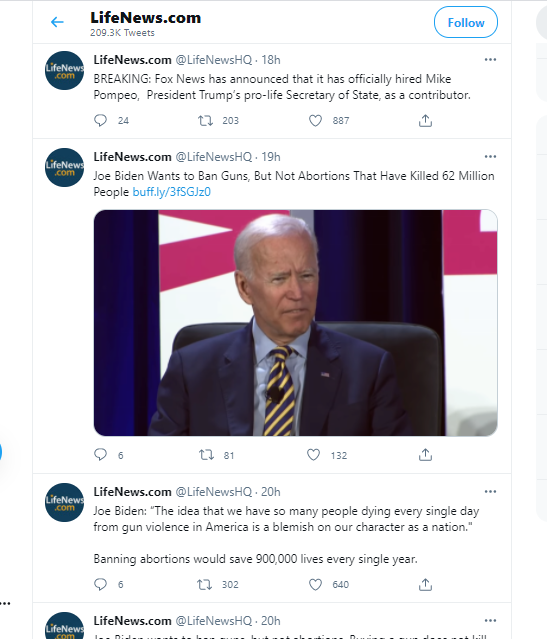
Reene Smith
Reene Smith is one of the big names in social media fake news spreaders. The user has several accounts on all three platforms; most of them have the same face but different pictures. According to Acker and Donovan (2019), such strategies are often used by fake accounts to increase social media presence. For instance, the following Twitter search of the name reveals several pseudo accounts, with usernames changes slightly to fit the platform’s internal settings. The account is known mainly for its fake news, such as linking the Clinton Foundation to the NYC coroner who said that Jeffrey Epstein’s death was a result of suicide.
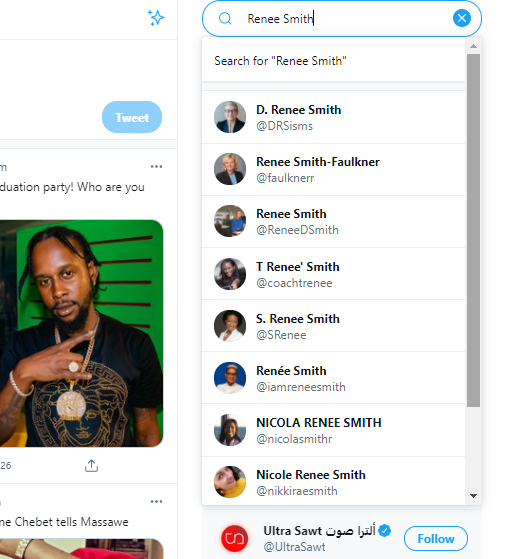
Conservative Tribune by WJ
Conservative Tribune by WJ is described as the platform, which mainly posts political and cultural opinions and commentaries written in The Western Journal. However, the platform is considered one of the spreaders of unsubstantiated information circulating the Internet. The page has 3,725,797 on Facebook, 94,800 on Instagram, and but does not exist on Twitter due to restrictions. In its post on Facebook, it indicated that the Democrats voted to increase Medicare access among the illegal and claimed that the veterans had to wait for a decade to get the same service. The site publishes several posts per day, most of which are inaccurate reports. Thus, even though it claims to provide posts from the Western Journal, it does not take its information from such a source.
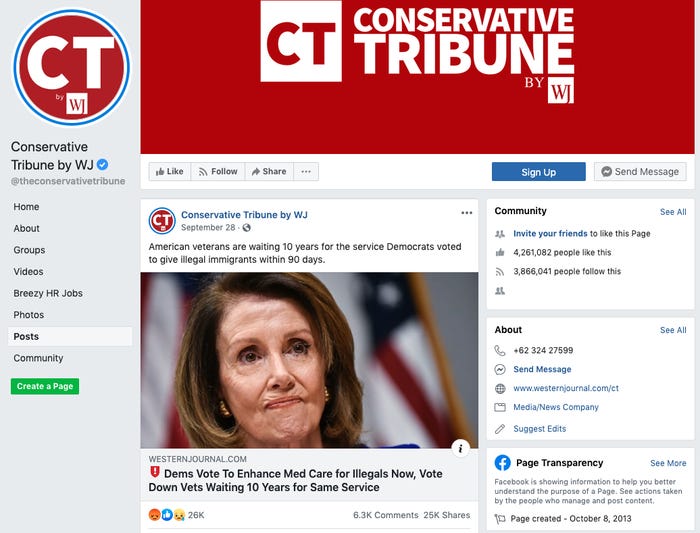
ACT for America
ACT for America is another fake new account and pages on different platforms that spread fake news regarding various social issues. For instance, in one of its Facebook posts in 2019, the page posted that Ilhan Omar Holding held secretive fundraisers for terrorist groups. However, this information was reported as fake news as the page was mainly spreading wrong information to taint the democrats regarding the American social issues. Being a proponent of the MAGA campaign, the page used unverified contents to ensure maximum destruction on their opponents who were not supporting the Trump presidency. Figure 4 below shows one of the posts reported by Facebook regarding misleading information on the issue. However, ACT for America choose the topic to continue the false narrative that Democrats support terrorist activities in America.

D.L Hungley
Although the account is not directly identifiable in other social media, several variants on the name are in Twitter and Instagram and are seen to spread fake news, which attacks the republicans. Figure 5, below, shows a Facebook post, where the owner of the account posted that President Trump was calculating the moves to have his vice, Mike Pence, impeached. Such a piece of news was likely to stir the political cohesion in the Republican Party so that the voters would be divided based on their support for both senior officials. However, this post and others from the same account were flagged and removed by the platforms.
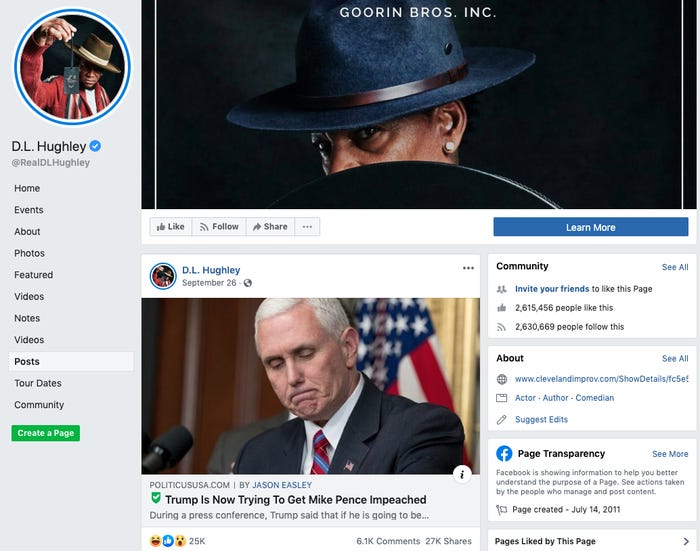
Several other fake news accounts and pages on Facebook, Twitter, and Instagram continue to spread rumors regarding various social, political, and economic issues. Some of these pages and pseudo accounts include V.A Shiva, ChaimanSizer, Southern War Cry, Nor Voom, and ImpeachTrump. These mentioned accounts and pages have some of their fake reports added to the appendix for further understanding of how social media is used to spread unverified information and how such accounts and pages can be traced and blocked to reduce such vices.
Analysis and Discussion of Findings
Based on the above data and the supplement provided in the appendix, it is essential to understand to use the metadata provided to understand the information flow. First, some of the most information used to trace such users include account names such as Reene Smith, double consonants as D.L, V.A, and having profiles pictures with default averters or non-identifying logos. Moreover, some of the accounts above, which were closed, were a result of failure to verify the creators’ details. These findings agree with the red flags, which according to Acker and Donovan (2019), are crucial in determining an account is spreading fake news. Most of these accounts could not be located in other social media platforms, and those that existed were either manipulated or were numerous pseudo accounts. Severalty of such accounts is due to closures, flagging, or need to increase the reach of the fake information.
The contents obtained and collected for use in this research reveal that some of the information gathered is posted on different social media platforms. For example, LifeNews publishes the same information on Facebook, Twitter, and Instagram, at the same time. This strategy is used to ensure the maximum possible reach of the data. For example, assuming that LifeNews’s half audience is on another platform shows that the fake news will reach more people than it can reach via one platform. Moreover, some of the contents of LifeNews were reposted on Twitter. D.L. Hughley’s report seemed to have lots of information, most of which were fabricated or lifted from various archives to fit the narrative of impeaching Mike Pence. These findings also agree with those fronted by Acker and Donovan (2019) to identify fake accounts. Thus, it is confirmed that fake accounts can be detected based on the various trends in posts.
The current investigation has also established that most fake accounts have massive followings due to the nature of the contents they share. While the current research has not confirmed the real users following these pseudo accounts, Acker and Donovan (2019) indicate that such accounts are also fake most of the time. This is true since most genuine users do not tend to comment on unconfirmed information, especially when such rumors are sensitive and can impact national security or incite violence.
Conclusion
Fake news is one of the issues affecting social media use. Different platforms have specific policies and terms and conditions, most of which guide social interactions, making sure that users abuse their platforms. However, due to using details such as email addresses, which any non-personal identifying information can create, the target platforms suffer infiltration with ghost users. This makes it easier for users to develop pseudo accounts, which cannot be traced back to them whenever they post fake news or inciting information. This makes it possible for the content creators to post any texts, images, or videos on any of the platforms they are registered with fake details. However, since these accounts’ metadata are available and can be seen by other users and platform controllers, most of them are closed whenever there are red flags such as rapid growth in followers, multiple posts within a specific time, or due to reports from other users. Such strategies which help to identify fake accounts make it possible for the platforms to deactivate them, thus controlling the spread of misinformation. Thus, even though users continue to infiltrate various social media sites to increase the spread of fake news, they can be eliminated by using the methods identified in this research.
Reference
Acker, A., & Donovan, J. (2019). Data craft: A theory/methods package for critical internet studies. Information, Communication & Society, 22(11), 1590-1609.
Appendix
